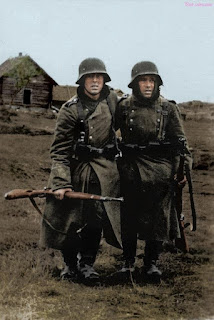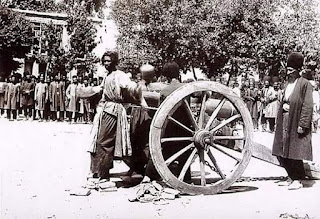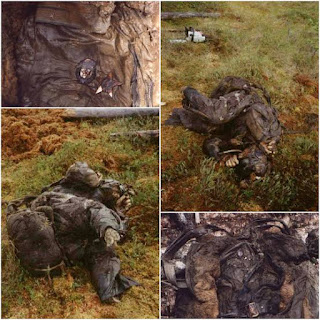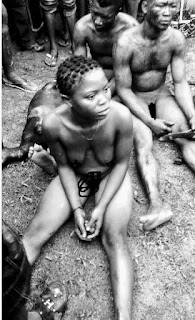General Franz Halder noted in his diary that the campaign in the Soviet Union had thus far caused 1,005,636 German casualties, 202,251 of which were killed
On this day 28th February 1942.
General Franz Halder noted in his diary that the campaign in the Soviet Union had thus far caused 1,005,636 German casualties, 202,251 of which were killed. He also noted that there were 112,627 cases of frostbite.
When Germany invaded Poland on 1 Sep 1939, Halder was responsible for overseeing the military campaign. In this capacity he had the first-hand knowledge to the atrocities the SS conducted against the Polish, but many criticize that Halder did little to stop them despite not necessarily agreeing with them.
Despite his profession as a soldier, Halder was a known pacifist, and on several occasions advised against waging further wars, but the loyal general always heeded to Hitler's orders.
Hadler was promoted to the rank of colonel general on 19 Jul 1940. Subsequently, he had a role in the design of invasion plans against France and the Low Countries as well as the plans for the Balkans.
In Aug 1940, he began participating in the invasion plan against the Soviet Union, but he knew it was a campaign that would be difficult to win.
In 1942, he began advising Hitler that Germany was underestimating the numerical strength of the Russians. These disagreements slowly damaged his working relationship with Hitler, finally leading to Hitler forcing Halder's retirement on 24 Sep 1942.
After this time, Hitler continued to use Halder as a target of demeaning jokes behind his back. Keitel recalled one incident where Hitler made a joke "at Halder's expense and labeled him a 'little fellow.'"
After the failed July Plot to assassinate Hitler, Halder was arrested immediately despite not being a part of the conspiracy.
Despite non-involvement, he remained imprisoned due to Hitler's distrust of him. He was first imprisoned at Flossenbürg, then Dachau.
On 31 Jan 1945, he was dismissed by Hitler from the army. After being freed on 24 Apr 1945, he surrendered to American troops on 4 May in Austria, and again became a prisoner, this time in American hands.
Throughout his career, Franz Halder kept a diary rich in detail, noting not only the chronology of events but also the observed emotions of the main decision makers in Germany and other trivia that were otherwise not recorded on official documents.
After the war, he cooperated with historians in constructing a view of the war through German eyes, acting as an adviser to the US Army Historical Division in the 1950s.
US President John Kennedy would later award him the Medal of Freedom for his contributions in history. He passed away in 1972.






.jpg)

.jpeg)




.jpeg)

Comments
Post a Comment